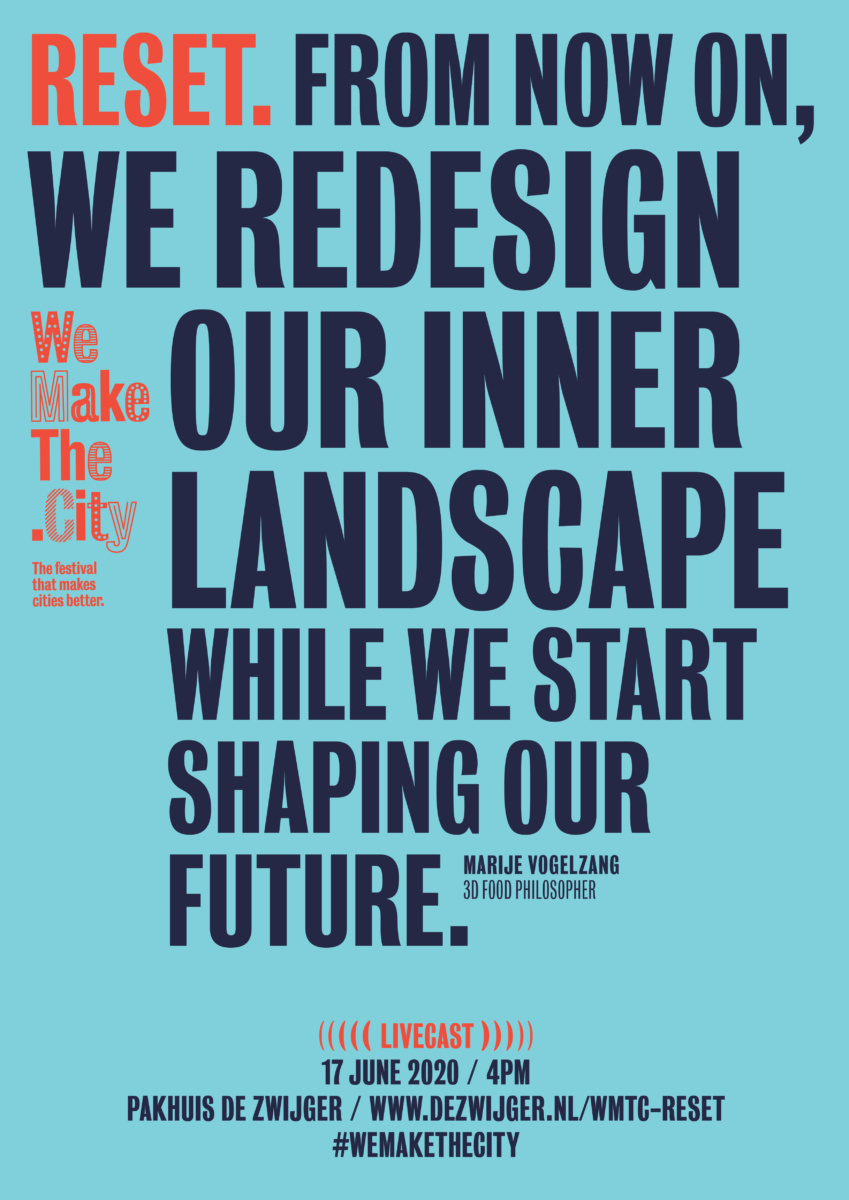The world is turned upside down, the streets are empty. Behind this seeming tranquility, there is a storm raging through our values and structures. This gives us the space to think about a complete ‘reset’. How can we restructure existing dysfunctional systems? In this series, we will showcase the perspectives of a variety of thought leaders who will reflect on this present-day situation. Through the lens of their own area of expertise and with an emphasis on the Creative Industry. The corona crisis is, without a doubt, a crisis that is leaving behind a trail of victims. But which transformations will we be left within the aftermath? During these times, it is the creatives who can visualise new scenarios, and through hypothesising can develop new insights into our future.
About Marije Vogelzang
Since Marije Vogelzang graduated from the Design Academy Eindhoven in 2000, she has been exploring the possibilities of food and design. As a curator, she creates exhibitions working from a meta vision on the act of eating and design or art. Marije is also the Head of the Food Non Food department at the Design Academy Eindhoven, where she is closely involved with the future of food and design. She doesn’t call herself a food designer – rather a 3D food philosopher – since food is already perfectly designed by nature. That’s why she is focussing a lot on heritage, culture, and the social and psychological influences surrounding food. Lately, Marije is shifting her attention to mindfulness combined with creative development, resulting in members community called Creative Strategies for Sensitive Pirates. Not being able to handle things means that you just haven’t learned the tools to deal with things or that you just didn’t train with them. How does the Corona crisis impact the way we relate to food and our food system, and what are the new tools, rules, and traditions we need for balancing our brainwaves and overcoming this crisis?
About Emilie Baltz
Emilie Baltz is a food technologist, designer and multimedia artist who creates multi-sensory experiences that foster curiosity and wonder, one lick, suck, bite and sniff at a time. Best known for her delightful innovation work in food & technology, Emilie uses food as a medium (and metaphor) for designing experience. With 20 years of work in design, hospitality, performance, technology, and new media, her fluency across diverse creative industries successfully embraces both analog and digital experience. Emilie is based in New York City and works out of the NEW LAB for emerging technologies. She is a founding member of NEW INC, the first museum led incubator hosted at the New Museum and is also part of the founding faculty of the School of Visual Arts Products of Design MFA program, as well as the founder of the first Food Design Studio at Pratt Institute.


YouTube - The majority of the world lives in abundance while at the same time we tend to take food for granted. Our food future might not be as certain as we think and the realisation that our approach to food, and our human connection to life should change increases rapidly. How can we create this paradigm shift? >>

Killscreen - Food is a precarious material to work with. It can crack open, ooze, spoil, decompose. A harsh contrast to technology, which is hard, cold, almost unforgivably unyielding, and a toxic scourge on the earth. Just ask food technologist Emilie Baltz. >>









